The Cyprus Theatre Organisation aims to take advantage of the opportunities afforded either by the European Union or bilaterally between EU member states for the development of theatre. In the past, Thoc has been involved in joint productions with the UK, Germany, Hungary, and Romania under the Leonardo da Vinci programme, and in bilateral collaborations with Greece, Russia, Germany and other countries.
Thoc regularly looks for new avenues for exchange and partnership with EU member states, in order to revitalise and enrich Cypriot theatre.
Internationally, our involvement in the European Theatre Convention (ETC) has shown how valuable the sharing of experiences and knowledge is for the theatre to develop in this country. The opportunity for ongoing sharing of information and networking between our island, which is remote from central Europe, and countries with a great theatre tradition has built bridges and created an extremely fruitful exchange of theatrical experiences, as has our participation in EU-funded programmes through the ETC.
In 2010, Thoc welcomed representatives from more than thirty European state theatres to Cyprus for the ETC’s spring general assembly.
European partnerships
- Curation of Cyprus’s entry to the Prague Quadrennial, the largest scenography exhibition in the world. At PQ 2023, our country was represented by an installation, artistically researched and designed by Melita Couta, based on an initial idea by the Curator of the exhibition Marina Maleni, is entitled Spectators in a Ghost City and is inspired by the artistic theme of PQ23, RARE and the ghost city of Famagusta.
The curatorial team proposes the use of scenographic methodologies as thinking processes, political acts, negotiating real spaces of conflict and artistic practices. Fragments from Famagusta, video archives from today and before 1974, experimental sculptural maquettes inspired by the city’s urban texture, acoustic environments and performative practices are used to connect this rare city with the Prague Quadrennial '23 visitors.
- Participation in the long-running European EMERGENCE programme, which focusses on set design.
- After a break, Thoc is once again participating in the European Theatre Convention, the largest Europe-wide theatre network, which is a necessary measure to prevent us becoming too inward-looking and missing out on European synergies.
- Our multilateral cooperation with foreign theatres is a starting point for exchanges, staff training, and programmes promoting theatrical development at a European level, etc.
Beneficiaries: Theatre professionals in Cyprus, both at a creative and a technical level, and the general public.
EMERGENCE: From shared experience to new creativity. Living Heritage/Reframing Memory
Project partners: Arts & Theatre Institute / Prague Quadrennial (Czech Republic), The Victoria & Albert Museum (United Kingdom), IZOLYATSIA (Ukraine), Institut Teatralny (Poland), Cyprus Theatre Organisation/THOC (Cyprus), Norwegian Theatre Academy/Østfold University College (Norway), New Theatre Institute of Latvia (Latvia), and National Kaohsiung Center for the Arts (Taiwan).
As part of the programme, the Cyprus Theatre Organisation hosted the second of three workshops in old Nicosia between 30 March and 13 April 2019. During the workshop, students from Cyprus, Latvia and Norway, came up with spatial planning approaches inspired by three main ‘narratives’ relating to the Walls of Nicosia and Famagusta, their double meaning, the violent severing of the thread of life, and the history of the lives of the families of the missing.
The participants co-created installations, one of which appeared at the Emergence exhibition of that year’s Prague Quadrennial, where the results from the actions of the countries participating in the programme were presented.
The workshop in Nicosia was led by Yiannis Toumazis, Sosse Eskitzian and Marina Maleni, who coordinates the European Emergence program for Cyprus on behalf of Thoc.
The workshops were held under the umbrella of the Emergence programme.
The first Workshop was hosted on the island of Håøya in the Norwegian fjords, and the third took place in Latvia in 2020.
The EFFE Label 2019-2020
Pancyprian Amateur Theatre Festival
Pancyprian School Theatre Games
The EFFE Label is the European quality stamp awarded to arts festivals that stand out for their work in the field of the arts, involvement in the community, and engagement with international dialogue.
The EFFE Programme – Europe for Festivals, Festivals for Europe (2019-2020)
EFFE is a preparatory action initiated by the European Festivals Association (EFA) with the support of the European Commission and the European Parliament. EFFE brings the arts to the public with an online database that covers the diverse range of arts festivals in Europe and lends itself to every kind of interaction and initiative. First and foremost, EFFE recognises excellence in the day-to-day work of festivals at a local level across Europe, functioning as an essential platform for arts festivals. By supporting and enabling artistic creation, production and participation, the European Festivals Association, its members and partners ensure that the human right of access to culture can be claimed by all citizens.
The Young Europe Programme
From October 2008 to March 2010, eleven state theatres (members of the ETC) took part in this programme, whose goals were to make plays for young people, to encourage young professionals to interact and share experiences and information, and to strengthen the relationship between theatres and new theatrical languages in Europe. Eight co-productions, two workshops and two international conferences dealt with themes such as identity, social inclusion, migration, rejection, and violence, and engaged with how new theatrical languages can be used as bridges between different countries. Through the programme, Thoc partnered with Berlin’s Theater an der Parkaue to bring the classroom play (i.e. a performance in a classroom rather than a theatre) to Cyprus.
The continuation of the successful programme once again found Cyprus among the group of countries that participated and played a leading role in its planning. The programme had the same basic principles, primarily respect for the right of young people to participate in issues that concern them, multilingualism and diversity.
Young Europe II began on 1 October 2011. Thoc worked with the National Theatre of Miskolc in Hungary to create a play about goblins, using Hambis Tsangaris’s research on the subject. In March 2013, eight theatres from six European countries presented collaborative programmes with plays for young people aged twelve and over, written with their own participation.
International Theatre Youth Forum
In 2012 and 2013, the Cyprus Theatre Organisation was officially invited to take part in the International Theatre Youth Forum funded by the European Theatre Convention (ETC) and sponsored by the European Union. Every year, groups of young people from five to seven European countries meet in the German town of Bad Hersfeld to take part in workshops and express their concerns about European identity or other issues of concern to sixteen to twenty-year-olds. The Cypriot participants were selected after an open invitation to all the children who took part in the Pancyprian School Theatre Games and who at the end were awarded the title of Ambassador for the ideas of the European Theatre Convention.
New Book of Plays/European Theatre Today
Each ETC member country selected the three best plays that received their first staging in each two-year period. This was done by a committee appointed by each member theatre. The plays from all the countries were published in a joint collection by the ETC, usually bilingual, electronic or printed, in which all the details of each production (summary, characters, etc.) were noted, along with bios and contact details. Cyprus participated in all four editions of the programme, in 2006, 2008, 2010 and 2012.
ΤRAMES
In 2016, as part of the European Theatre Convention (ETC) exchange programmes, the Cyprus Theatre Organisation participated in the successful TRAMES (Traductions Mises en Scene) programme organised by La Comédie de Saint-Etienne.
The programme aims to promote plays in the various member countries through the process of translating and directing a play in the language of each participating country. Gilles Granouillet’s Ma mère qui chantait sur un phare (My mother who sang on a lighthouse) was the play analysed and studied on the programme.
The participating translators had the opportunity to meet in St. Etienne together with the playwright and to work on the draft translations they had already prepared. At the same time, they met with the directors of the other countries as well as with the French director and the actors who would be staging the work in French. The theatres taking part in the programme (St. Etienne, Thoc, the Volkstheater in Vienna, and the National Theatre of Craiova) undertook to produce the translated play in a regular performance or staged reading.
At the meeting of directors and translators in St. Etienne, Thoc was represented by the writer and theatre critic Konstantinos Georgiou, who also translated the play into Greek.
In the last part of the programme, the play was directed in Cyprus by Konstantinos Georgiou himself in a space he designed in Hani, in Kaimakli. The poetic musicality of the work was interpreted by two leading theatre actors, Antonis Katsaris and Lenia Sorokou and three young performers, Natia Astraiou, Paul Kitromilidis and Alexandros Chrysostomou, from the Free Theater Workshop of Théâtre S.D.F., where Konstantinos Georgiou was a facilitator. Added value was given to the whole project by the valuable interaction between the experienced actors and the teenagers on the workshop.
Thoc participated in the TRAMES programme for a second time in 2010. On this occasion, the committee chose Carole Fréchette's La petite pièce en haut de l'escalier (The small room at the top of the stairs), which received five nominations for the 2009 Grand prix de littérature dramatique. Cyprus was represented by the director Magdalena Zira. The first stage of the programme was completed from 1 to 5 February 2010 with a workshop and a reading of the play in St. Etienne, directed by Jean-Claude Berutti. During the second stage, the play was performed in Cyprus on 17 March as a staged reading directed by Magdalena Zira.
-
 16.4.2025
16.4.2025Roots&Routes - A Mosaic of Rising Artists - Held from 11 to 13 April 2025
Theatre Development
-
 24.3.2025
24.3.2025Roots&Routes - A Mosaic of Rising Artists
Theatre Development
-
 14.10.2024
14.10.2024Physical Residency | European artists’ residency programme
Theatre Development
-
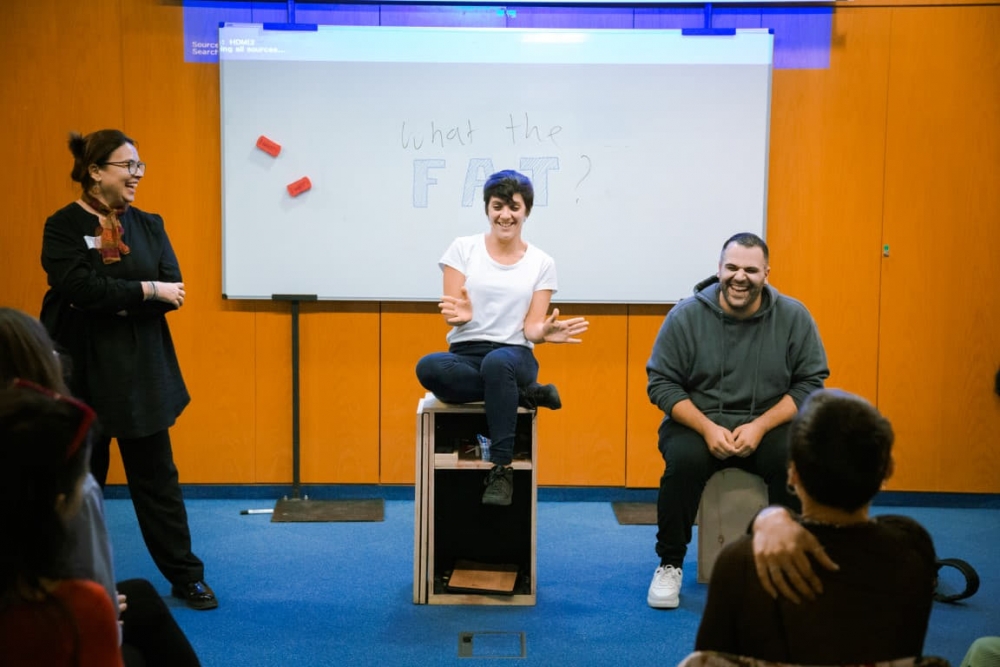 24.4.2024
24.4.2024ETC International Conference - Young Europe IV Festival
Theatre Development
-
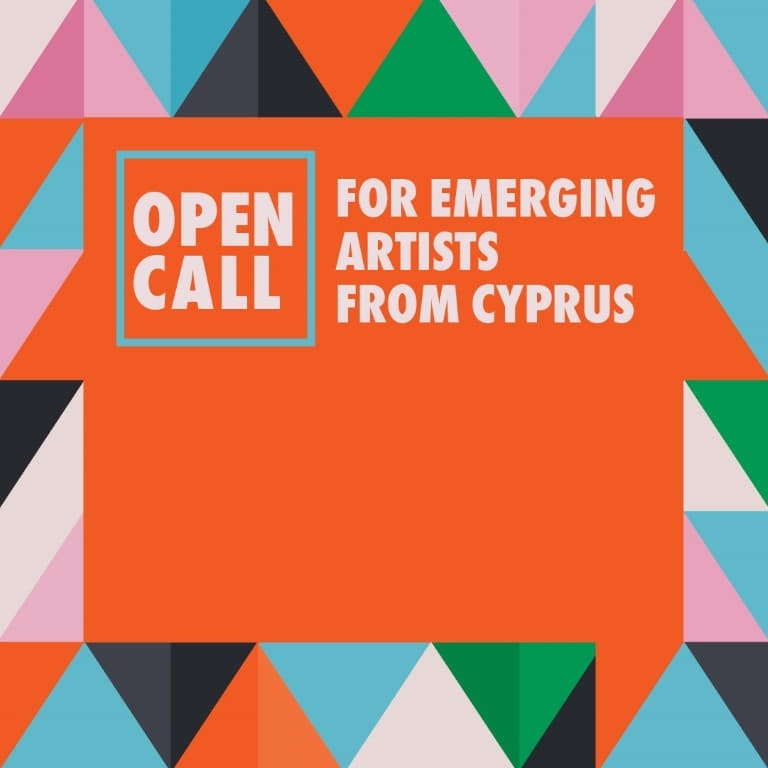 21.3.2024
21.3.2024Open Call for Emerging Artists from Cyprus | Applications by April 8th 2024
Theatre Development
-
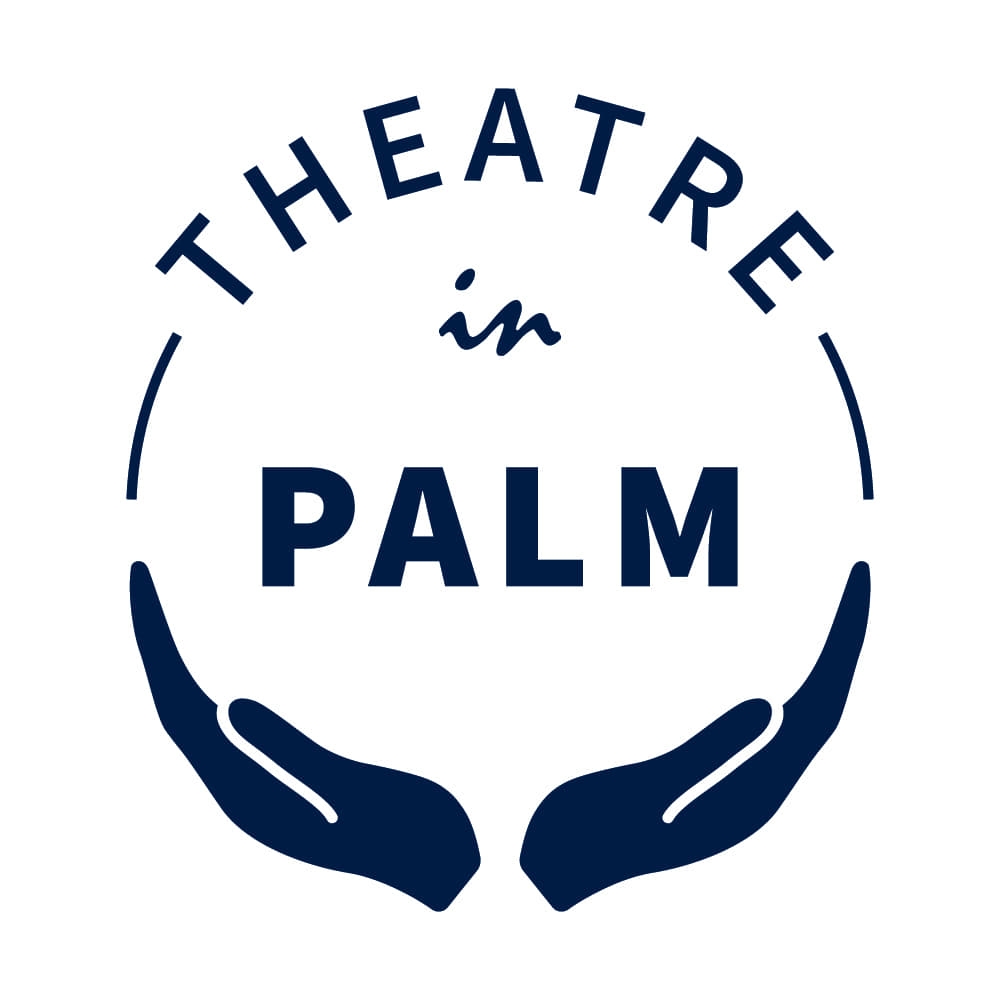 27.8.2023
27.8.2023Hybrid Residency, 6-17 November 2023 | Open Cal
Theatre Development
-
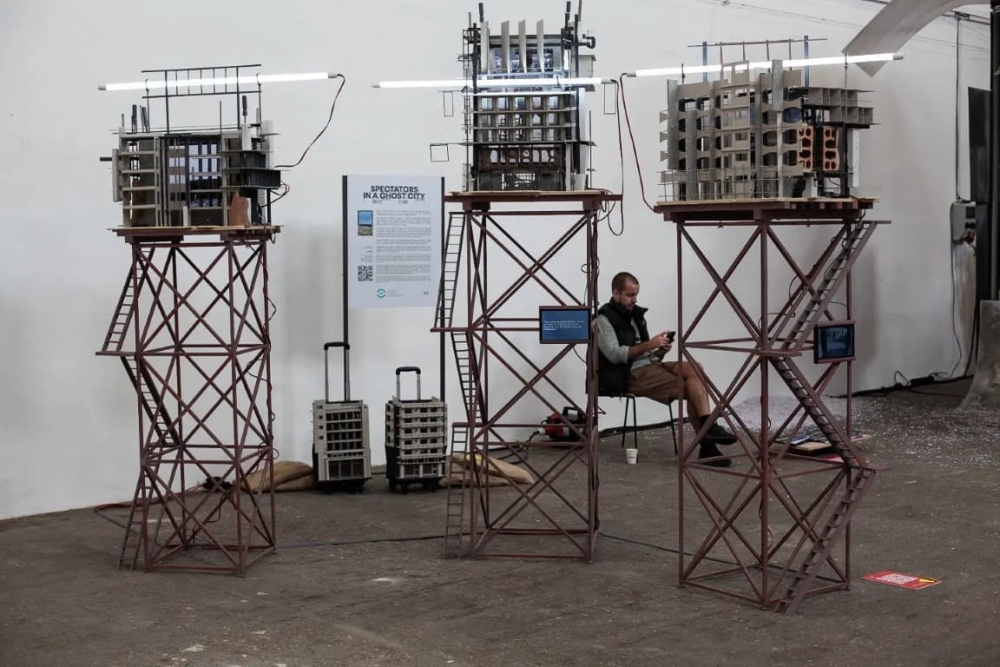 21.8.2023
21.8.2023The Golden Triga has been awarded to Cyprus | Prague Quadrennial 2023
Theatre Development
-
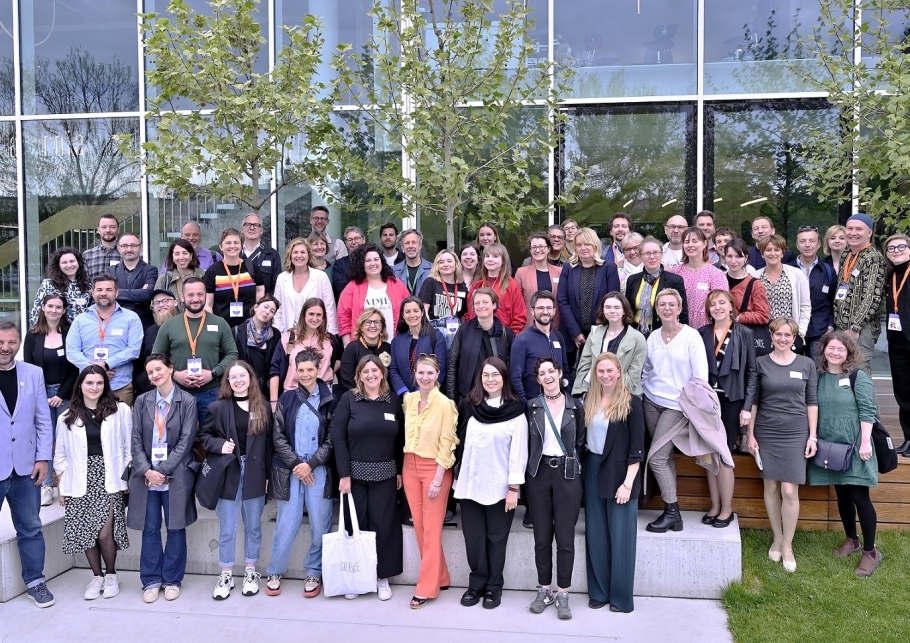 07.6.2023
07.6.2023Cyprus Theatre Organisation participates in two major events on the future of European theatre
Theatre Development
-
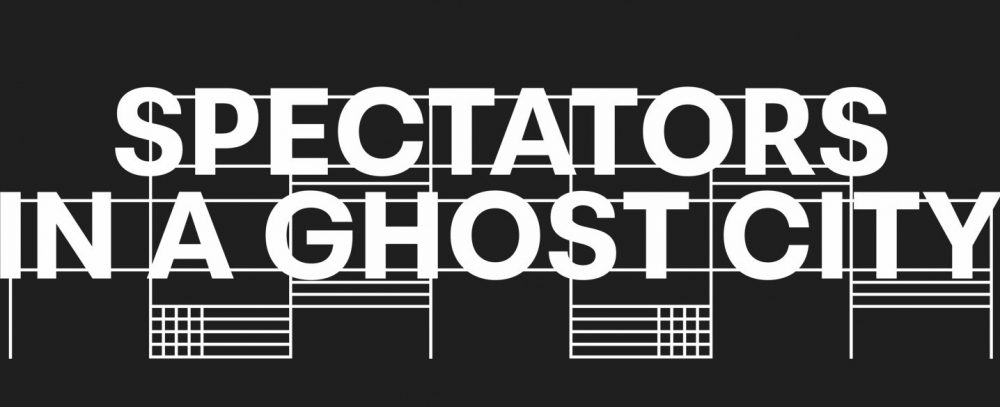 25.5.2023
25.5.2023Spectators In A Ghost City
Theatre Development
-
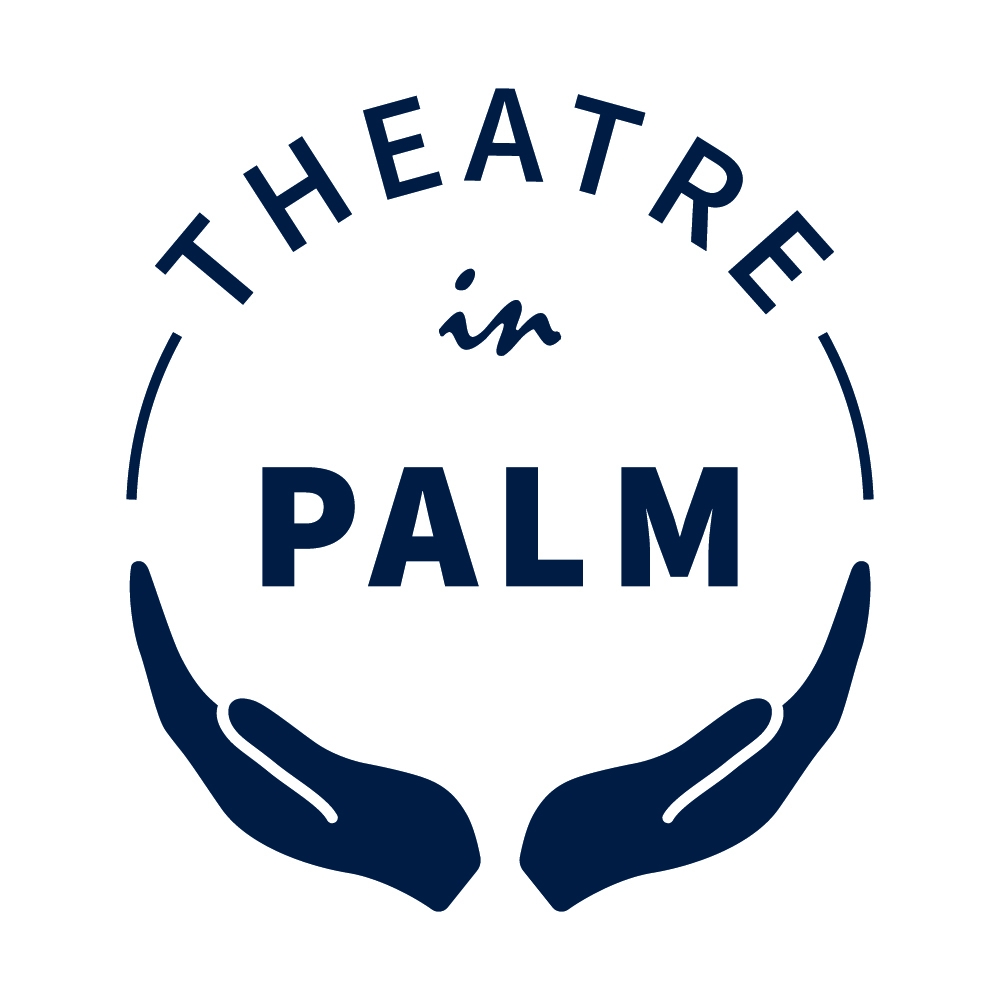 09.5.2023
09.5.2023Digital Coffee Break | Understanding the cultural/theatre ecosystems
Theatre Development
-
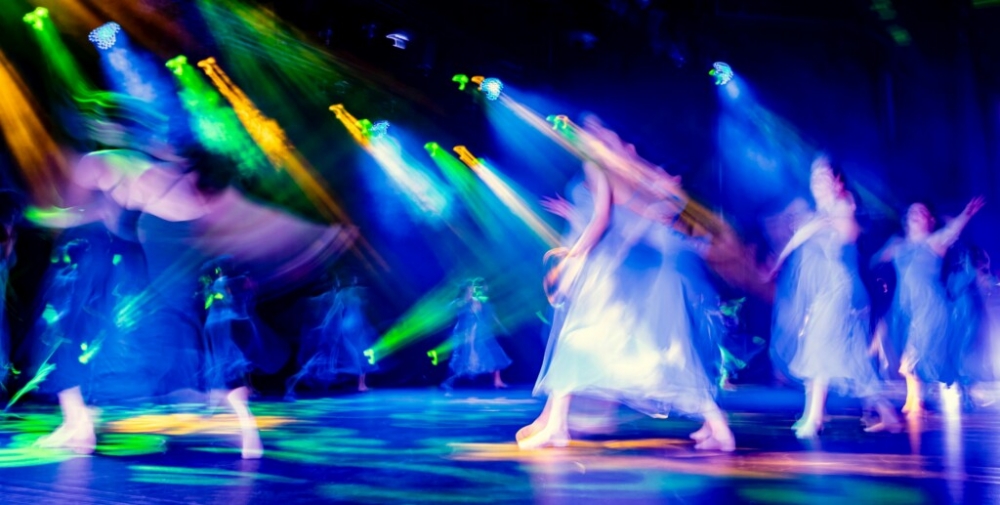 04.5.2023
04.5.2023From Emerging to Established and Sustainable Theatre Makers | Workshop convener: Dr Aleksandar Brkic
Theatre Development
-
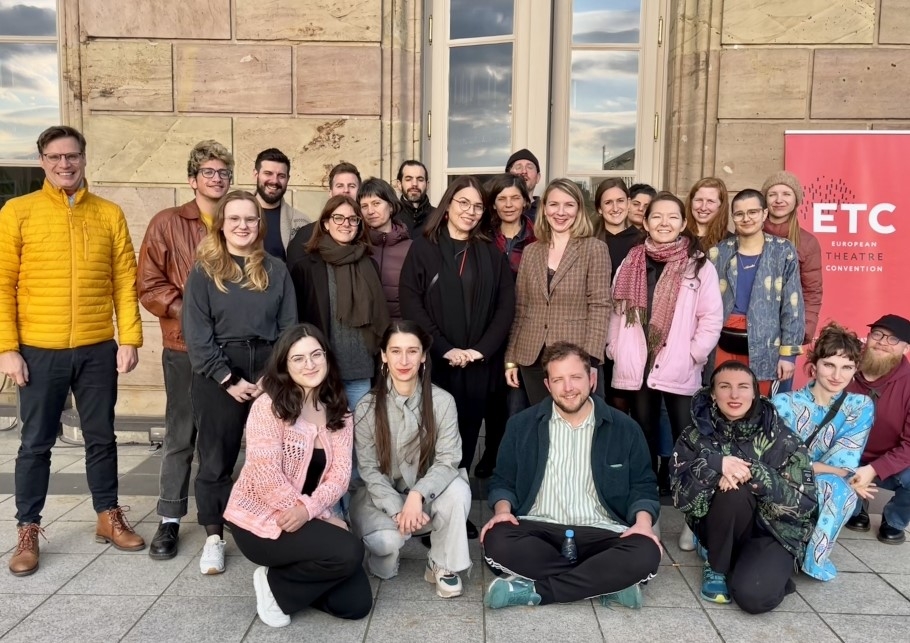 03.5.2023
03.5.2023Young Europe IV Convenes in Braunscwheig Ahead of Festival | 19-21 April 2023
Theatre Development
-
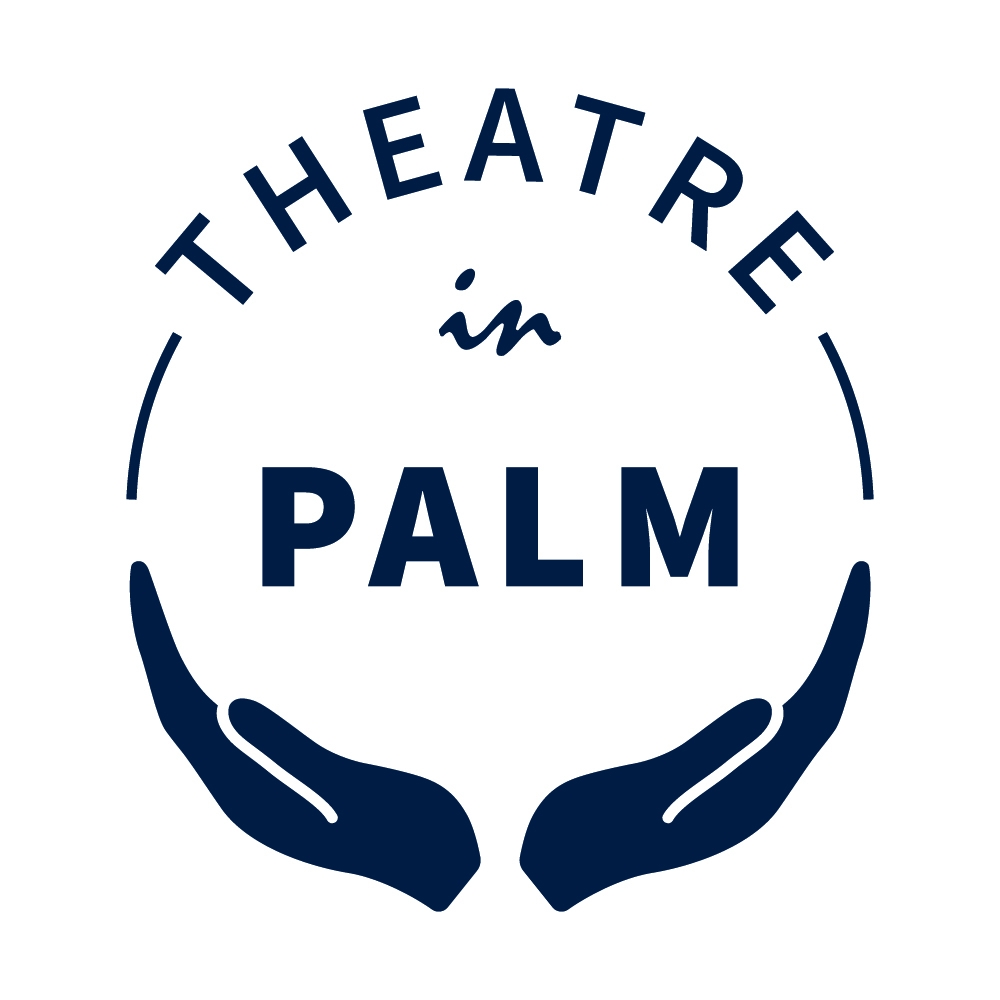 31.3.2023
31.3.2023Theatre in Palm
Theatre Development


